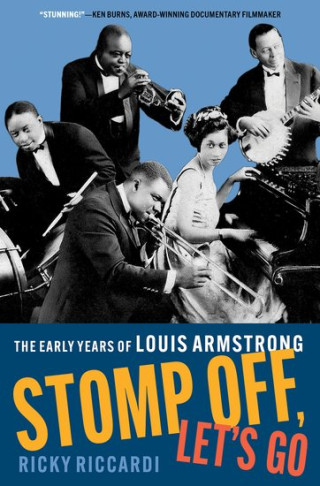He was one of the most influential figures in jazz history, famous for hits such as What a Wonderful World, appearing in Hollywood movies and working with stars from Bing Crosby to Ella Fitzgerald.
Louis Armstrong’s childhood, however, was a world away from his later life – he grew up in serious poverty in a neighbourhood plagued by crime and violence. New evidence has now shed fresh light on the musician’s early life, including revelations that both his mother and sister faced arrests for prostitution.
Armstrong was born in 1901 in New Orleans. In 1912, he was arrested and sent to the Colored Waif’s Home where, under music teacher Peter Davis, he learned how to play the cornet and dreamed of becoming a professional musician. In 1922, he joined cornettist King Oliver’s band in Chicago and, by 1925, he was making records under his own name. By the 1960s, his recordings – notably his version of the title song from the musical Hello, Dolly! – were so popular that they knocked the Beatles off the top of the charts at the height of Beatlemania.
Armstrong spoke adoringly of his mother and sister, forever grateful for their encouragement. While biographers have written about his tough childhood, there has been no proof – although much speculation – that they had to turn to prostitution to make ends meet. Now police reports and interviews have come to light revealing that his mother, Mayann, and sister, Beatrice, were arrested on numerous occasions, spending days in jail.
The revelations will be published in a new book by Ricky Riccardi, director of research collections for the Louis Armstrong House Museum in New York and a Grammy award-winner for his work on Armstrong’s recordings.
Stomp Off, Let’s Go: The Early Years of Louis Armstrong, which is published by Oxford University Press this month in the US, and in May in the UK, draws on unpublished tapes, manuscripts and letters, including interviews with Armstrong’s sister late in life, an unfinished autobiography by Armstrong’s second wife, Lil Hardin, and Armstrong’s unedited manuscript for his autobiography Satchmo: My Life in New Orleans.
Riccardi told the Observer: “Louis talked about the prostitution in his neighbourhood, but he never went into his mother doing it and getting arrested. Now I have the black-and-white proof. The incredible part is that all the police records were uploaded to ancestry.com [the family history website] about a year and a half ago.” They appear to have been held by the New Orleans public library.
